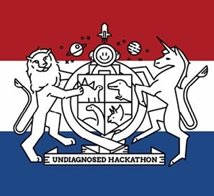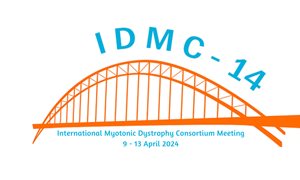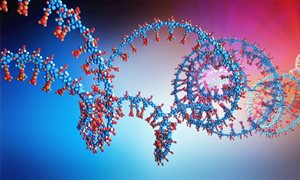
The second edition of the Undiagnosed Hackathon (UH2024) between Jun 6-8 at the Radboud university medical center in Nijmegen was successfully concluded with diagnoses for ten patients. With around 122 participants (doctors, researchers, data analysts, bioinformaticians, AI experts) from 28 different countries. Professor Wendy van Zelst, head of the genetics department, and her team look back on a successful event.
Program
The program consisted of various parts; the first day was a 'tools workshop' focusing on innovations in the genetics of rare diseases. On this day, participants updated each other on the latest developments in DNA research, with valuable contributions from both academia and industry. On the second day, the organization officially kicked off the Hackathon, and participants met the families from the Netherlands. After the introduction, they started searching for diagnoses for a total of 42 families from different countries. On the third day, the teams continued their investigations, culminating in ten diagnoses at the end of the second edition of the Undiagnosed Hackathon 2024.
Multidisciplinary Teams
Participants were divided into five multidisciplinary teams, each including doctors, researchers, data analysts, bioinformaticians, and AI experts. Each team was assigned several patients to investigate. An additional team, “the Transformers,” consisted of technology experts who could be consulted for their technical expertise. The teams were named "Smileys," "Dinosaurs," "Space," "Animals," and "Unicorns," representing the figures found in the UH2024 emblem.

For many participants, such as laboratory specialists and bioinformaticians who typically do not have contact with patients, meeting and interacting with patients and their families was very impactful. Facing the people for whom they work daily brought a lot of emotion, providing extra motivation for this dedicated group to find a diagnosis within 48 hours. They could not wait to start and were hard to stop.
Success
Halfway through the third day, cheers erupted from the room where the Dinosaurs had been busy for two days comparing, testing, analyzing, reviewing records, and comparing again. People hugged each other and Helene Cederroth, with Mikk Cederroth founder of the Wilhelm Foundation, who initiated the Undiagnosed Hackathon. Others were drawn by the cheers and saw the joy on the participants' faces. Team Dinosaurs celebrated: they had found a diagnosis for one of their patients.
Ultimately, the various teams found diagnoses for ten patients in two days, one of which was a Dutch family. Ten out of 42 - is that something to be so happy about? Absolutely! When you realize that patients with an undiagnosed condition face an uncertain future, never knowing what the next day will bring, you understand why these teams are incredibly happy.
Diagnosis Helps
Having a diagnosis helps in receiving the right care and guidance and prevents incorrect treatment. It also helps to explain to others what is wrong with your child. A diagnosis alleviates much uncertainty for patients and parents, can prevent or take away feelings of guilt, and provides points of contact for peer support. It also often provides more clarity about the prognosis and what it means for potential future children.
Combined Brainpower
What made this event so unique and successful was the overwhelming sense of solidarity and collaboration; the spirit and combined expertise within each team and among the teams were impressive ('crowd intelligence'). A lot of work was done in advance by the Genetics team of Radboudumc. In record time, new data for 26 of the 42 patients were generated in the weeks leading up to the Hackathon. This was possible because Radboudumc could use the most innovative tests in this area.
Alexander Hoischen, Professor for Genomic Technologies at Radboudumc: “It was precisely the most innovative technologies such as 'optical genome mapping,' 'long-read sequencing,' and 'transcriptome analysis' that contributed significantly to unraveling the cases. Thanks to these tests, we also identified new candidate genes, but further research is needed to clarify the relationship between these genes and rare conditions.”
When asked if she looks back on the Hackathon with satisfaction, Wendy van Zelst, head of the clinical genetics department at Radboudumc and Maastricht UMC+, responded: “It was truly fantastic to work together with patients, parents, participants, and the great Genetics team to achieve such a beautiful result. It was wonderful to see and experience what such collaboration can lead to.”
Daphne Stemkens, project manager of UH2024, Radboudumc: “Hundreds of hours of consultations and thousands of emails preceded the Hackathon to make it possible. Obtaining data and samples from different countries, receiving 122 participants from 28 countries, and making all data available requires a lot of preparation. Knowledge sharing and collaboration are important pillars, and this continues after the Hackathon. All the preparation was more than worth it!”
Future Perspective
According to Wendy van Zelst, “we will certainly look at organizing something similar locally within Radboudumc or at a national level to find diagnoses for more patients. Additionally, we will continue to collect evidence that these new DNA technologies really contribute to more diagnoses so that we can eventually implement this in regular diagnostics.”
Partners
An operation like the Hackathon can only work with the support of partners and sponsors. The Wilhelm Foundation initiated the Undiagnosed Hackathon. Additionally, financial support came from several other partners, enabling the organization to make the Hackathon a success. The organization thanks these partners for their support.
-
Want to know more about these subjects? Click on the buttons below for more news.
More information
Related news items

14th International Myotonic Dystrophy Consortium Meeting Brings Hope for Treatment International leaders share new insights in Nijmegen; Family Day
4 April 2024New developments, treatments, and research will be discussed at the 14th International Myotonic Dystrophy Consortium Meeting (IDMC-14) at De Vereeniging in Nijmegen. This 5-day meeting (9-13 April) concludes on April 13th with a Family Day for patients with myotonic dystrophy and their loved ones.
read more
Research on the development of kidneys in prematurely born children
17 February 2022 Michiel Schreuder, together with Maastricht UMC+, is now starting a study into the kidneys of these children. For this, the researchers received a grant from the Kidney Foundation. read more




